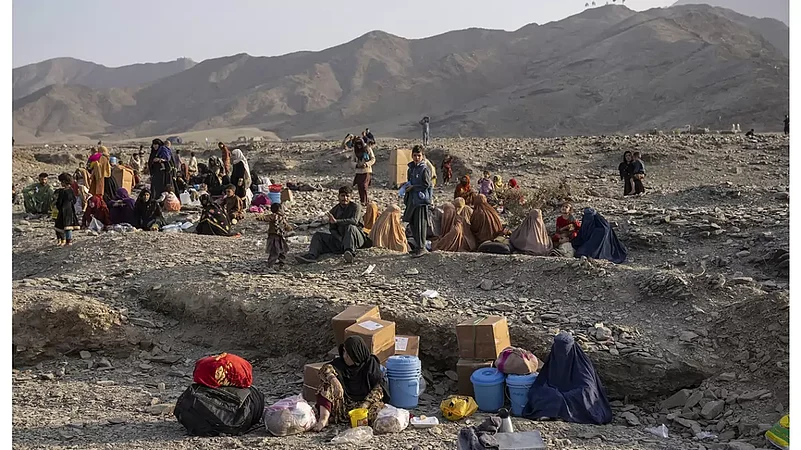Over 6,500 Afghan nationals crossed the Torkham border on Sunday, contributing to a total of more than 170,000 repatriated Afghans, as reported by border officials on Monday.
This voluntary evacuation operation began after the government set a November 1 deadline for unregistered foreign nationals to leave Pakistan to comply with the law. Since September 17, a total of 174,358 Afghan nationals have returned to Afghanistan. Although voluntary repatriation is ongoing, the numbers have been gradually declining.
An official involved in the repatriation process noted the reduction in the number of illegal immigrants at the border crossing since the deadline expired.
On Sunday, 6,584 Afghan nationals, including women and children, departed from Pakistan. In addition, deportations have taken place, with 209 deportees sent back from various prisons across Khyber Pakhtunkhwa and Punjab, along with thousands of men, women, and children in recent days.
It's worth mentioning that aside from voluntary repatriation, Afghan nationals involved in minor offenses have also been deported, with over 500 prisoners from different regions being repatriated between November 1 and 4.
Furthermore, on Saturday, around 700 Afghan nationals returned through the Chaman border. Caretaker Information Minister Jan Achakzai stated that more than 54,000 Afghans have already returned to their homeland.
The government has promised to cover the expenses of repatriation for Afghan families. However, international human rights organizations have criticized Pakistan's deportation of millions of undocumented migrants, highlighting the challenges faced by Afghans returning home, including a lack of shelter, food, drinking water, and proper sanitation.
Save the Children's country director, Arshad Malik, expressed concerns about returning individuals lacking education documents and language barriers, potentially leading to child labor and involvement in smuggling due to increased poverty.
The Human Rights Commission of Pakistan (HRCP) Chairperson Hina Jilani has written to the UN High Commissioner for Refugees Filippo Grandi, expressing concerns that Pakistan's decision may trigger a humanitarian crisis, particularly affecting vulnerable refugees and asylum seekers.
Similarly, the National Commission on the Status of Women has written a letter to Interior Minister Sarfraz Bugti, highlighting the plight of approximately 2.5 million widows in Afghanistan, including professionals such as journalists, doctors, and software engineers who are undocumented due to various circumstances.


























